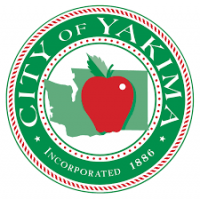Procurement chief: Keeping track of paperwork is key when buying from coops
When Sue Ownby, procurement manager for the city of Yakima and Yakima County, Wash., is contemplating a cooperative buy, she starts organizing the paperwork. “We build a bid file as if it were our agency’s own solicitation, because we will be audited as if it were our own bid.” 
Ownby’s team collects and compiles a variety of items for the cooperative bid file. The items include the original solicitation, proof of advertisement on the web site or newspaper, the vendor list, the successful vendors’ responses, the award and the resulting contract.
Ownby, a 34-year public purchasing veteran, constructs a bid file for both cooperative and piggyback agreements that her department is considering. “If I’m using someone else’s contract, I make sure I have all of their documentation and set up a file as if it were my own solicitation.”
Checklists covering cooperative agreements are a must-have, Ownby believes. “Besides keeping us consistent, they sit really well with the State Auditor’s,” Ownby tells GPN. Her department uses a cooperative purchasing checklist developed by city procurement officials in Richland, Wash. The checklist asks if the solicitation meets a total of 11 requirements, such as:
–Do we have any statutory restrictions (multiple awards, preferences)?
–Has the awarded vendor agreed to allow piggybacks?
–Do we have a signed Interlocal Agreement with the agency?
–Is the solicitation/contract still in effect? If it has renewals, do we have a copy of the valid renewal agreement?
Ownby says it’s important to evaluate the unique features of each cooperative agreement, and to get complete copies of the pact for agency files. “Terms and conditions can vary within limits as long as they don’t violate your agency’s rules,” Ownby advises. She explains: Make sure there is nothing in the cooperative agreement that your agency can’t live with.” She offers this example: “If I had a policy that said I was not able to accept a bid if there was only one bid received, I would not be able to piggyback anyone else’s bid if they received only one bid.”
There’s an abundance of cooperative choices available, Ownby says. “The hardest part about utilizing coop contracts is identifying which one has the goods/services I am looking for, or figuring out which coop has the best prices (since vendors often hold more than one contract).”
Ownby relies on the ProcureSource web site to compare cooperative offerings. Her agency also finds it helpful to maintain a list of the coops the agency uses along with notes of some of the commodities her agency buys.
NIGP’s “Position Paper on Cooperative Procurement” can be a useful resource, Ownby says. “If your attorney is having a hard time grasping the benefits of cooperative procurement, perhaps this paper will help.” Go here to view the paper.
Yakima’s city/county buyers purchase everything from backhoes to street sweepers through cooperative agreements. Commodities purchased cooperatively include:
Theatre Lighting
Park Restrooms
Caterpillar Compactors
Toter Refuse Carts
Large Format Scanners & Cameras
Police Interceptors, Toyota Highlanders
Panasonic Toughbooks
Polaris Snowmobiles
License Plate Readers
Mobile Radios
Video System for Council Chambers
Terex Utilities Aerial Device
MAKO Breathing Air Modules
Michael Keating is senior editor for American City & County and the GPN web site. Contact: [email protected]
_____________
To get connected and stay up-to-date with similar content from American City & County:
Like us on Facebook
Follow us on Twitter
Watch us on Youtube




















